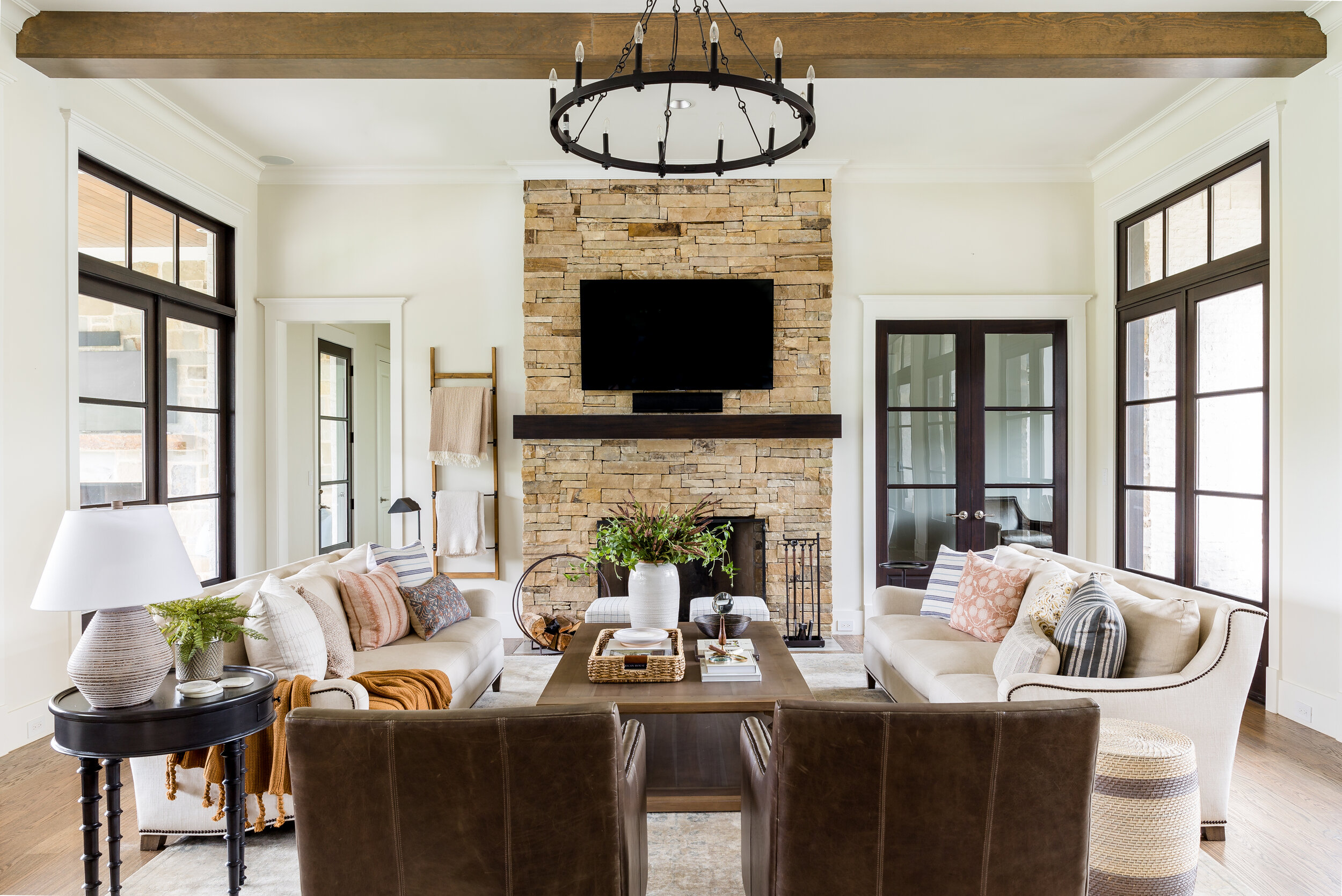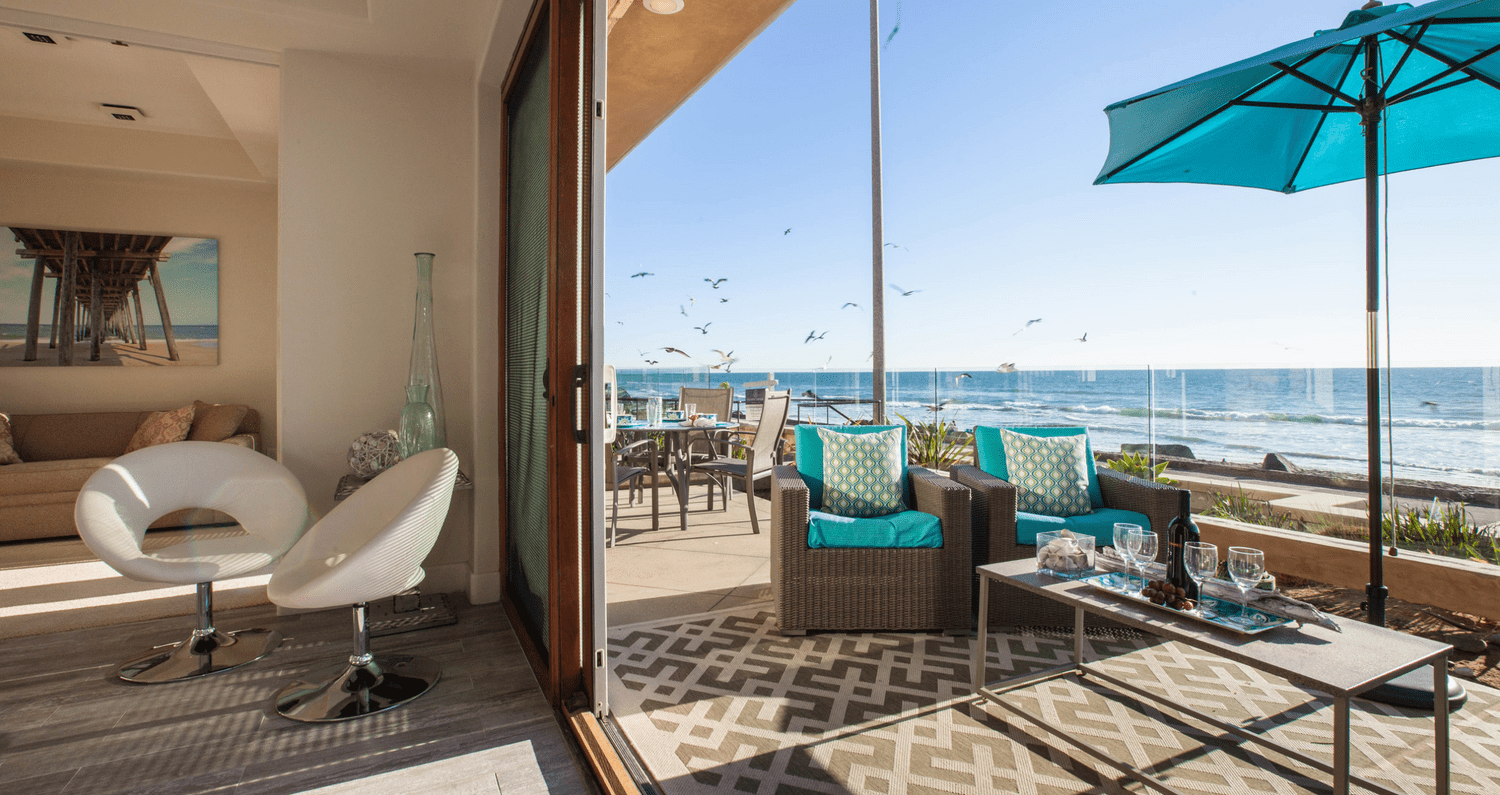It was just another casual Monday morning at roughly 6 A.M. There I was, taking my first sip of coffee, slowly scrolling through my Instagram feed. Right before my half-shut eyes, I saw that a very large furniture company (3.4 million followers) had shared one of my images from a recent interiors session.
They had also linked to their products featured in the photo. So not only had they posted my image, they were also making money directly from it.
And no one had asked my permission to use the photo.
I got so riled up. I was so frustrated, y’all. If this has ever happened to you, I don’t need to explain the fury and helpless panic that welled up inside me.
You should have seen my poor husband's face as I flailed my arms about, fighting back angry tears.
“This company! It’s so large with such a huge following! Who do they think they are? How dare they take advantage of me. How could they just TAKE my photo?”
Well, guess what. They didn’t.
Educate Clients to Protect Your Most Valuable Assets
After I decreased my anger level from a ten to somewhere between a three and a four, I did some investigating and realized my client gave them permission.
He had posted the photo on his Instagram feed and tagged the furniture company. The furniture company asked him to use the image and left a cute little link to a set of terms the client automatically agreed to when he said yes.
You’ve likely seen this client-company interaction before. Have you ever taken a close look at the terms these big companies link to?
Take a looksie at two examples I’ve recently come across:
- “[By agreeing to share the image,] you promise that you own all rights to your User Content or, alternatively, that you have the right to give [us] the rights described above and that your User Content does not infringe the intellectual property rights, privacy rights, publicity rights, or other legal rights of any third party.”
- “[By agreeing to share the image,] You hereby represent and warrant that you: (i) own all rights in and to your Use Generated Content (ii) have permission from all person(s) appearing in your Use Generated Content to grant the rights granted herein.
All the responsibility is put on our clients who without proper education have zero idea what copyright infringement is and therefore would likely never think to review these terms.
Even if they did read these terms, an uneducated client might assume they are the copyright owner. After all, they paid for the image, right?
Wrong. They paid for a usage license.
This is why we have to educate them: they do not inherently understand copyright laws, who copyright owners are, what an image license is, nor what copyright infringement looks like in the mediums where they use our images.
So we have to tell them. More than once. Educating clients is the best way to protect our most valuable assets--our images.

This is the first-ever image I re-sold a license for. It was purchased by the table carpenter. I almost let the carpenter use it for free; however, knowing the image was a valuable asset, I stood my ground and made a sale instead. Design by Grandi Home & Design
Looking back on my onboarding process with the client mentioned above, I failed to adequately educate him on licensing and its implications for how he can use the images from our session.
In fact, the only place I mentioned copyright information was in the contract.
Educating clients on copyright law might seem a little complicated. So let’s demystify it, because it really isn’t that hard. Promise!
Psst...Have you educated yourself?
Are you unsure of what you’re entitled to as the copyright owner of your images? Words like “copyright” and “infringement” sound like complicated legal jargon, but it’s easy to educate yourself. Start here. Then go here.
How to Educate Clients
My guess is that you include licensing clauses in your contracts like I did. I learned the hard way that this is not enough. At multiple touch points, we need to educate clients--and send gentle reminders--so a red flag is raised in their mind’s eye when infringement opportunities arise.
Here’s how I educate clients:
Talk About Copyright from the Get-Go
During our first conversation, I ask clients about their experience hiring a professional photographer. This usually tells me how much they know about copyright and image licensing.
Depending on what they know, I tell a version of the following:
“One thing I want to discuss is the idea of ‘image licensing.’ When you purchase photos from me--and really, any interior and architectural photographer--what you’re actually purchasing are usage rights to use the photo.
It’s a lot like when you buy music. You buy the song for, let’s say, one dollar. Your friend Stacy hears it playing in your car, and she wants the song, too. You cannot legally give her the song, right? She has to go to iTunes and purchase the song for herself. Neither of you owns the song, but through the license you purchased, you can use it.
Same with photography. You can use the images according to our contract terms, but my clients are not allowed to share my images freely. I ask them instead to direct the inquiring party to me so I can get them squared away.
For example, if you post a kitchen photo from our session and the lighting manufacturer comments asking to use it, this is a scenario where you need to direct them to me. If an image is shared without my permission, it’s actually considered copyright infringement.
In many instances, we can get the third party to pay for the license, and that’s my goal. However, in the event they don’t want to, you are more than welcome to pay for the license on their behalf if you find this valuable to your marketing efforts.
Give them concrete examples like this, and it’ll be easy and more palatable for them.

This image was re-licensed to my client’s stylist months after the original session. Because I properly educated the stylist about licensing, she knew she needed to purchase her own license to be able to use it. Design by Creative Elements by Lucie
Pro-tip: I highly recommend you handle inquiries via phone. Many first timers are taken aback to learn they can’t freely give household brand names and popular Instagram accounts permission to share the images. They will be more receptive if they hear your gracious, light-hearted voice rather than blunt text. (By phone also demonstrates a stellar level of service).
Remind Them When You Send the Contract
I emphasize two specific terms along with the link to the contract:
“Please read the contract thoroughly; however, I always like to highlight a couple items:
-
Clients may not share images with third parties (anyone other than you and me). Please contact me if a third party wants to use the images from our session, and I will get them squared away.
-
Please provide me credit (@sarahlindenphotography) when appropriate, including social media.
Remind Them When You Deliver the Images
At this point, they should understand copyright basics. But it might not hurt to gently remind them one more time, especially if they’re a new client hiring a professional photographer for the first time.
“Hi Client! Your images are ready to be downloaded and used online! I hope you love them as much as I do. As you post them, I ask you please tag me when appropriate (@sarahlindenphotography), and notify me if someone asks to use the image.”
Asking clients to give me credit is not just for exposure--it’s another soft reminder of who owns the image. Additionally, it directs my clients’ social media followers to my profile where they will see my usage statement.
Speaking of usage statements...

I re-licensed this image to my original client on behalf of a well-known third party. This third party wanted to use the photo but didn’t want to pay for it. It was valuable enough for my client’s exposure in the market to pay for the image license a second time. Design by Timber Sky Interiors
How to Educate Third Parties
This is a bit trickier since you can’t monitor third parties as closely as clients. But still, you can take steps to protect your work. Anywhere I’ve posted my images online, I leave a usage statement:
“Please DM for photo usage inquiries.” or “Please repost with written permission only.”
You can see this at work on my instagram profile as well as individual posts. While it’s not foolproof, it helps to keep people accountable.
How to Educate Potential Clients
I also introduce the idea of image licensing on my website’s FAQ page. It’s not a full explanation. but it plants the seed with those who are interested in my services. Bonus--it deters anyone who is looking for photos on the cheap.
FAQ: Who Can Use the Images From Our Session?
You and me only, please! As outlined in the contract we sign prior to the session, my clients may not grant third parties permission to use the images. Who is a "third party?" Anyone other than you and me, from trades on your project to influencers and brands on social media.
I register all my images with the U.S. Copyright office to protect my work and our relationship. If someone asks to use the images, like on Instagram in the comments section of an image you've posted, I ask that my clients please hold off on responding to them and contact me.
Register Your Images with the U.S. Copyright Office
Yes, this is a thing. I know it sounds a bit laborious, but personally, I don’t want this to be something I regret not doing.
You own the image copyright regardless of whether you register your images. But in the event you take legal action against someone who has stolen your work, you can land a bigger settlement with a photo that is registered vs. non-registered.
I’ve not yet had to take an infringement incident this far, but you better believe I’m prepared. You should be, too. Our photos are our most valuable assets, remember?

I was hired by a regional magazine to photograph this space. I re-license the image to the designer who wanted the image for her portfolio. Design by Alisa Cristine Interiors
Revisit Your On-boarding Process
The incident with my client and the furniture company caused me to go back to my on-boarding process and identify specific areas where I needed to adequately educate my clients. All listed above for your use!
I realized I was to blame for my image being freely shared. There’d be no way for me to hold my client accountable without apologizing for not properly educating him. So that’s what I did. And he was SUPER nice about the whole thing. He also apologized for missing the terms in the contract, and you know what? He ended up purchasing a license on behalf of the furniture company for $200. The marketing opportunity here was valuable enough for him to be willing to pay for it.
Final Thoughts
Keep in mind you are serving other businesses owners. If you educate clients in ways that make sense to them, many will understand why you’re so serious about copyright (even if they’re shocked at first). Still, make space for concerns and questions when they don’t understand. The earlier they learn how serious we are about our work, the less likely we’ll deal with infringement issues in the future.

Sarah is a residential interior photography based Dallas, Texas. She works with designers and builders to create publish-ready imagery that grows their brand and an ideal client base.
Website: www.sarahlindenphotography.com
IG: www.instagram.com/sarahlindenphotography





